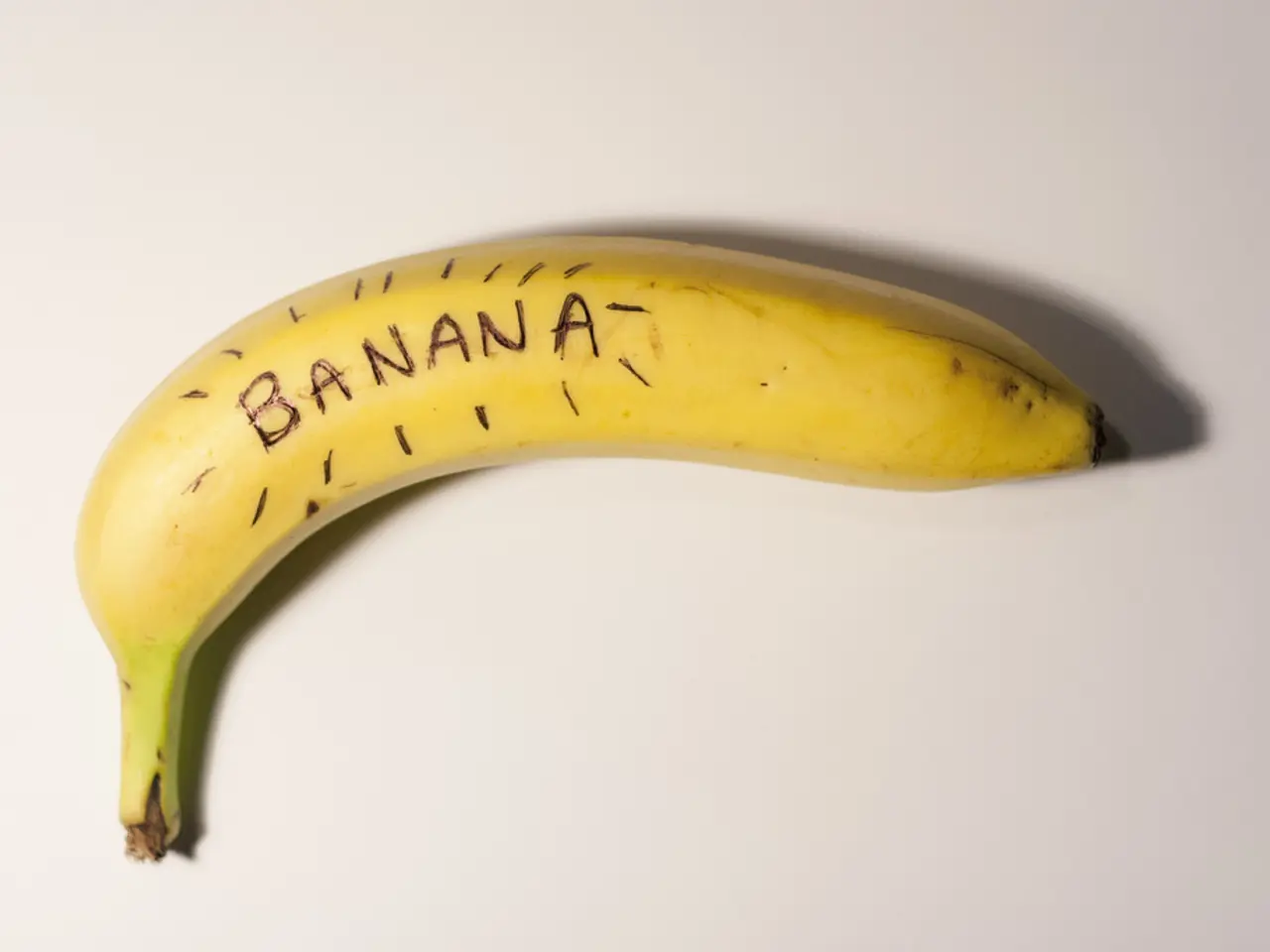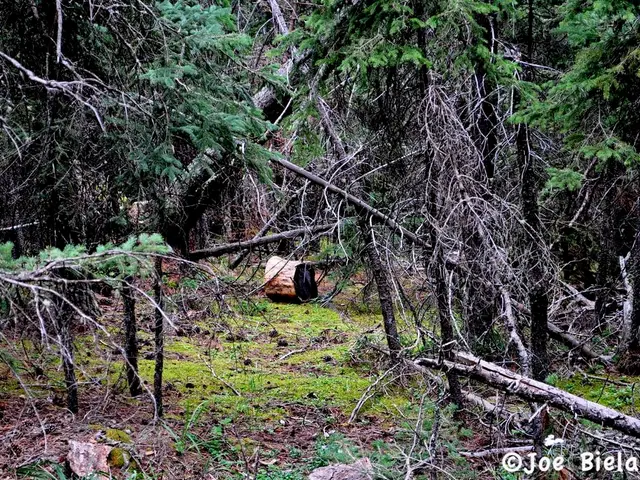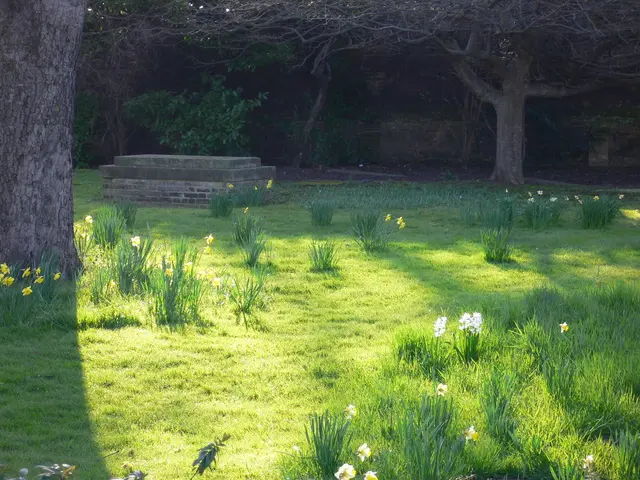Optimal Soil Compositions for Thriving Banana Trees
In the world of banana cultivation, creating the perfect soil environment is crucial for optimal growth and fruit production. Here's a guide on how to prepare the soil or potting mix for banana plants, ensuring they thrive and bear fruit successfully.
Banana plants require well-draining soil with good aeration to prevent waterlogging and root rot. The soil should be moist but not waterlogged, with a loose and crumbly texture. To achieve this, organic matter like compost can be added to improve both drainage and aeration.
For container-grown banana plants, a mix including perlite and coconut coir is recommended to enhance drainage and aeration. A good soil mixture for banana plants also includes peat, perlite, and vermiculite, with added organic matter such as composted manure or coffee grounds.
In terms of soil pH, banana plants thrive in a slightly acidic to neutral pH range of about 5.5 to 6.5, though some sources extend this range up to 7.0. The peat moss used should be either baled sphagnum or granular peat. To increase soil pH, lime can be added, while sulfur can be used to decrease it.
For in-ground planting, amend native soil with plenty of organic matter like well-decomposed compost or aged manure to improve fertility, drainage, and soil structure. Loosen the soil to about 8–12 inches deep before planting to improve aeration and root penetration. Avoid heavy clay soils or amend them heavily with organic matter and perlite to prevent compaction.
Mulching around the plant base with organic mulch can retain soil moisture and moderate temperature, enhancing overall soil conditions. Fertilize the tree once a month with a fertilizer high in magnesium, potassium, and nitrogen to promote growth.
To loosen compacted soil, mix in dehydrated cow manure, garden compost, or peat moss (up to a 1/3 concentration) into the topsoil. If planting a banana tree in a pot, choose a deep pot with adequate drainage and enough room for the roots to expand. Dig a hole that is deep and wide enough for the root system to have plenty of room to expand.
Regular testing of soil pH is essential, especially when using municipal water, as a pH outside the ideal range can result in nutrient lockout. By ensuring well-draining, aerated, organically rich soil with a pH between 5.5 and 6.5, and by using a mix of compost, perlite, and coconut coir (for containers) or amending native soil with organic matter (for in-ground), you create ideal growing conditions for banana plants to thrive and produce fruit successfully.
A home-and-garden enthusiast interested in banana cultivation needs to pay attention to creating a suitable lifestyle for banana plants, as they require well-draining soil with good aeration to flourish. To achieve this, a good soil mixture for banana plants includes peat, perlite, vermiculite, and organic matter such as composted manure or coffee grounds, while for container-grown banana plants, a mix including perlite and coconut coir is recommended.








